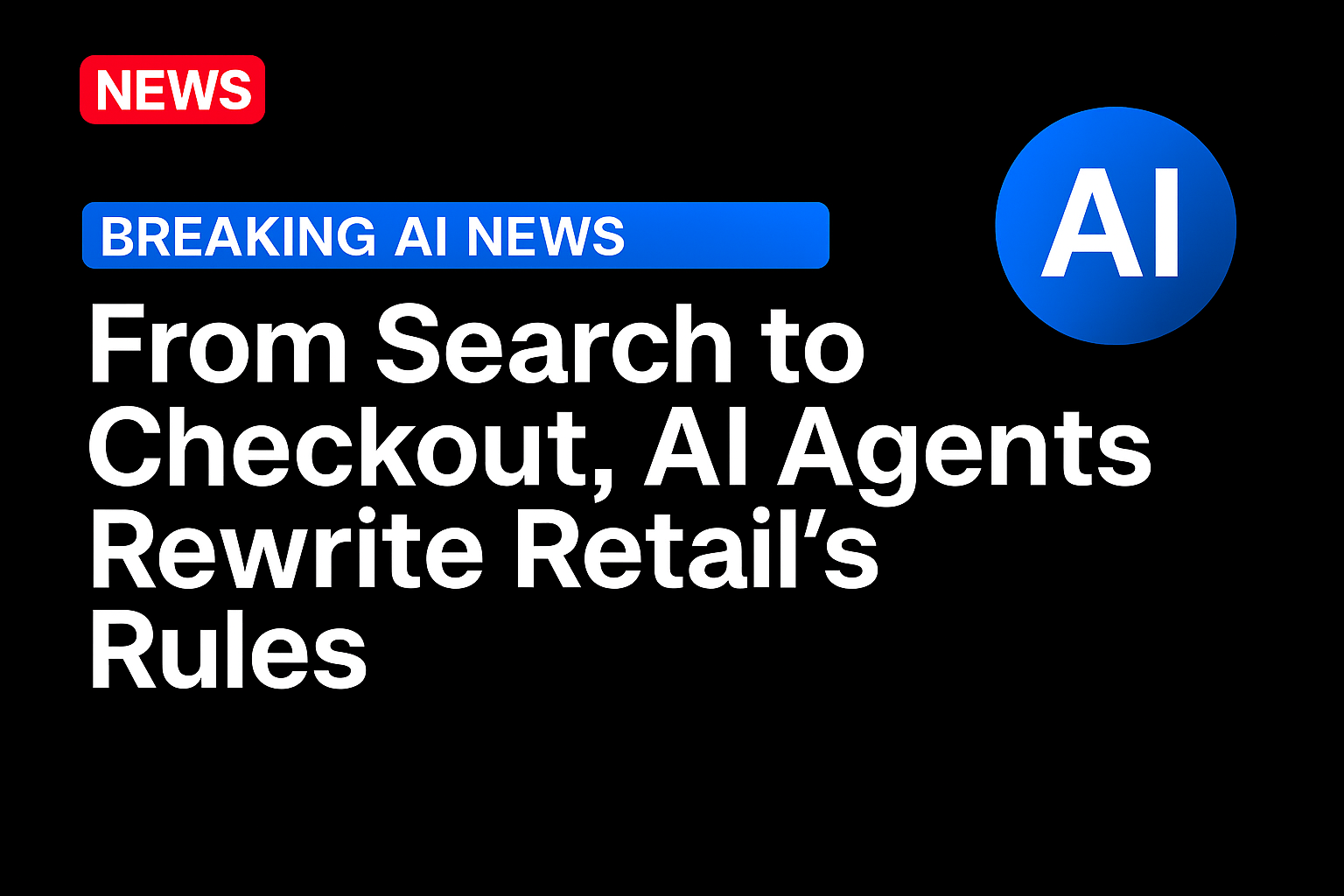
AI agents are fast becoming the new gatekeepers of commerce, shrinking discovery from thousands of listings to a handful of curated options and collapsing checkout into a single click. Google, PayPal and eBay are racing to control that interface, each with a distinct strategy but a common goal: to define how consumers shop in the artificial intelligence (AI) agent era.
For merchants, the implications are stark. If they cannot adapt to the way agents filter and transact, they risk vanishing from the shopping journey altogether.
The New Shortlist Economy
Discovery is no longer about keywords and endless scrolls. In the AI agent era, queries become contextual and conversational “a black dress for a summer cocktail party by the water” and the agent returns just a few options. As PYMNTS CEO Karen Webster wrote, the challenge is no longer about being indexed but about being shortlist-eligible, which requires structured catalogs, clean metadata and semantic alignment.
Google is already reshaping the front door of discovery. Its new AI Mode lets users describe products naturally and receive visual grids of results, while its Conversational AI Shopping Agent allows retailers to deploy branded assistants that guide customers through a digital aisle. For merchants, the bar has risen, incomplete attributes or poor image data no longer mean lower SEO rank they mean exclusion from the agent’s response.
Online marketplace eBay is trying to keep smaller sellers in that game. Its AI Activate program with OpenAI gives 10,000 U.K. small businesses access to ChatGPT Enterprise and training, helping them upgrade listings, marketing and operations. For eBay, which said the program is worth 3 million pounds, it is not just seller support but platform defense. If AI agents ignore the long tail of sellers, the marketplace itself risks being hollowed out.
Execution Is the New Bottleneck
Being shortlisted is only half the battle. AI agents must be able to complete the purchase without friction, which raises the stakes for payments and fulfillment. Any glitch in checkout, delivery or returns can result in permanent exclusion from the AI agent’s pathway.
PayPal is responding by reinventing Honey as more than a coupon tool. It now surfaces products in response to agent queries and routes purchases directly through PayPal’s payments rails. In effect, it collapses intent and transaction into one flow, positioning PayPal not just as a processor but as an orchestrator of agentic commerce.
OpenAI, meanwhile, has launched Instant Checkout, letting U.S. consumers buy Etsy products directly inside ChatGPT, with Shopify merchants soon to follow. A “Buy” button lets users confirm details and complete a purchase without leaving the chat. While fulfillment, returns, and service still sit with the merchant, the transaction itself happens entirely within the agent’s interface.
These moves highlight how execution is becoming the decisive factor in agentic commerce. Merchants must not only be discoverable but also seamlessly transactable in the environments where agents operate.
AI agents are no longer a test case on the margins of retail. They are already shaping which products consumers see, how purchases get executed and where payments are trusted. This holiday season will reveal the scale of that influence against a backdrop of slower spending growth. Mastercard expects retail sales ex-autos to rise just 3.6 percent year over year and the likelihood of a post-holiday chargeback surge. And retailers are already bracing for disputes to spike 45 to 60 days after December as AI-enabled fraud and “friendly” chargebacks pile up.
Source: https://www.pymnts.com/




